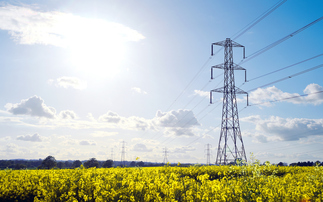Former US Vice President accuses some energy companies of misleading investors over climate risks
Al Gore, the former US vice president and leading environmental activist, has called on companies and individuals to divest from fossil fuels, warning that failure to do so could leave them holding worthless assets.
Speaking at the United Nations climate change talks in Paris today, Gore argued that fossil fuel assets were being hit by four trends that could cause them to become devalued over the coming years.
He predicted a legally-binding deal agreed at the COP21 talks could have a negative impact on the prospects for fossil fuel companies, alongside the falling costs of renewable energy, the growth of pollution trading markets, and growing awareness by consumers of climate change risks.
"Investors need to look at the pattern that's unfolding lest they be trapped holding stranded assets," he said, comparing carbon risks to the subprime mortgage crisis that sparked the recent financial meltdown.
He accused some oil companies of attempting to hide the risks they face from climate change, highlighting the recent decision by the New York State attorney general to launch a criminal investigation against Exxon Mobil over its alleged failure to disclose the potential impacts of climate change on its balance sheet to investors.
"There are now trillions of dollars of stranded carbon assets and there are illusions which levitate the assertion that the value is much higher than it really is," Gore added. "There are active efforts to fool investors. Investors who can escape being misled, escape falling into these illusions. [They] should, and now do, understand that there are multiple pathways to stranding."
More than 500 institutions with assets worth $3.4tr have now joined the global movement to shift investments out of carbon intensive assets, according to data released yesterday by campaign groups 350.org and Divest-Invest.
Gore urged more investors to take their money out of high carbon stocks and invest in renewable energy instead. "Divest, first from the riskiest assets and, over time, from all [assets] that look as if they are in danger of being stranded," he added. "And then invest in the fantastic new opportunities that are emerging in the low carbon economy."
Gore's stance remains at odds with some other activist investors who argue it is better to hold onto high carbon stocks, and then use influence as shareholders to encourage companies to take action on climate change.
This article is part of BusinessGreen's Road to Paris hub, hosted in association with PwC.







